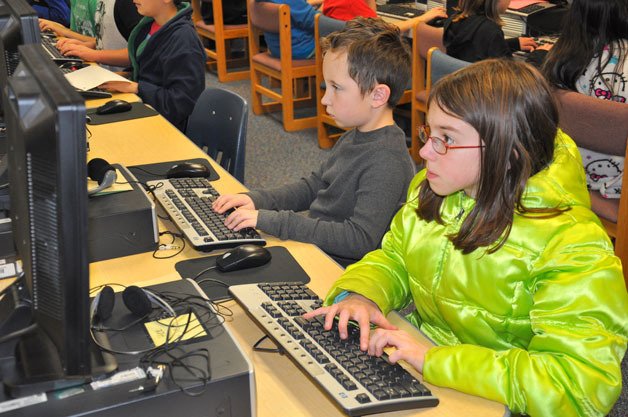Lance Gibbon has seen children as young as preschool handling a parent’s smartphone in their tiny hands.
The superintendent of the Oak Harbor School District knows that the use of digital technology is only increasing in society with smartphones, tablets and other digital devices as common in the community and school grounds as the day when students used to carry around Pee Chee folders.
“It’s starting earlier and earlier,” Gibbon said.
With the use of technology in classrooms increasing, the responsibility that falls upon schools over proper usage and Internet safety is increasing as well.
Oak Harbor School District will be implementing lessons about the proper and safe use of digital technology into its K-12 curriculum starting in the fall.
With education and issues formerly handled through library programs and school counselors, lessons in “digital citizenship” will be taught in the classroom beginning in kindergarten and continue until a student’s senior year.
The Oak Harbor district is using free curriculum offered by Common Sense Media.
Although the lessons are prompted by changes in federal and state law, how they are being taught varies from district to district, Gibbon said.
“We recognized that the more technology that we bring into schools and the more technology students have access to at home that it’s increasingly important that we help educate students earlier and earlier about responsible use of technology,” Gibbon said.
“And sadly, we see evidence in the media and even experience it in our own community when people aren’t responsible.”
Anna Fick, the Oak Harbor School District’s technology teacher on special assignment, presented the “digital citizenship” concepts and plan to the school board on March 9.
Fick said it’s necessary for students to be taught at an early age the world of the Internet they are entering.
The curriculum is designed to be age appropriate with lessons that warn students about disclosing private information, not accepting everything they see on the internet as factual, websites to avoid, issues with cyberbullying and how online messages can come across differently than when communicated face to face.
“You and I know how to be respectful to each other and be responsible,” Fick said.
“Online, it’s really easy to feel like you can hide behind something or you can get away with something,” Fick said.
Through social media, Fick said many people are learning lessons that what they post online is archived and doesn’t disappear as simply or quickly as pressing a delete button.
“This is a way to be proactive to make it part of the culture just like manners when you sit down at the table,” said Peter Szalai, the school district’s director of teaching and learning.
“You don’t eat with your hands. What kind of manners do you have when you’re in the online world? That’s basically what it is.”



